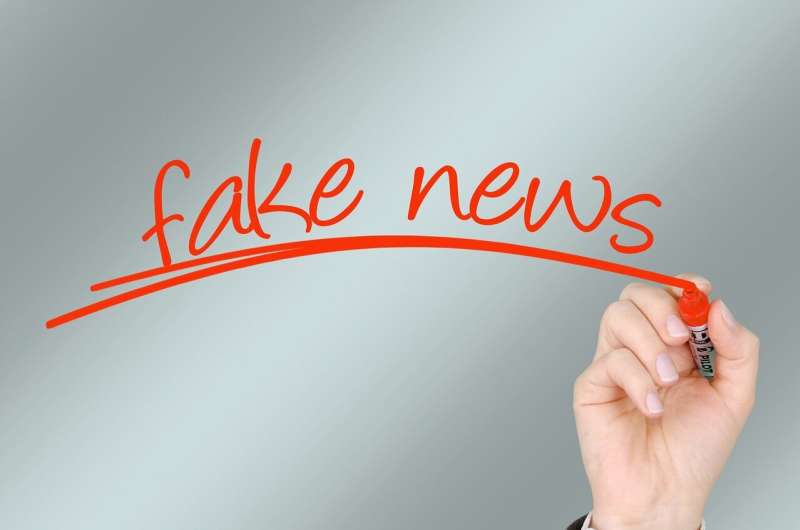Facts are misremembered to fit personal biases, study finds

If you're looking for who's responsible for all the misinformation out there, you might want to take a peek in the mirror.
OK, OK, it's not all your fault.
Although external sources of misinformation like "fake news" and purposeful disinformation campaigns draw a lot of attention today, recent research at Ohio State University indicates we might misremember information all on our own.
In a recent study, Ohio State researchers found that when given accurate statistics on a controversial issue, people tended to misremember numbers to match their own beliefs. Then, when researchers gave study participants accurate information and asked them to convey it to others, the information grew more and more different as it was passed from person to person.
"What our research would suggest is there's a lot of focus on external sources of misinformation, but we also have to pay attention to these internal sources," Coronel said.
For the study, participants were given factual numerical information about four societal issues. Based on pre-tests, researchers found that the numbers for two of the societal issues matched many people's understanding of the matter. But for the other two issues, the numbers didn't fit with their understanding.
For the numbers that were inconsistent with how people view the issue, participants were more likely to remember the numbers incorrectly, in a way that matched their probable biases.
For example, researchers presented participants with information showing there were 12.8 million Mexican immigrants in the United States in 2007, and fewer—11.7 million—in 2014. When participants were then given a memory test, they were more likely to remember the statistics incorrectly, in a way that agreed with many people's understanding that the number of Mexican immigrants would be higher in 2014 than 2007.
In a second portion of the study, researchers examined how memory distortions can be spread among social circles as individuals share the misinformation they created. Mimicking a game of "telephone," researchers presented a participant with accurate numbers about a societal issue.
For example, the participant was asked to write down the numbers of Mexican immigrants in 2007 and 2014 from memory. The numbers from the first person were then given to a second person, and the process was repeated to a third person.
Researchers found that as the retellings increased from person-to-person, the information transformed to be more consistent with people's understanding of the issue rather than the factual numbers.
It's one thing to believe information yourself without fact-checking it first, said Shannon Poulsen, a doctoral student at Ohio State who conducted the study with Coronel and fellow doctoral student Matthew Sweitzer. But the second portion of the study shows the danger of then sharing inaccurate information with others, she said.
"Now the issue is not just you ... now you're sharing information," Poulsen said.
Then, you can become part of the bigger problem, Coronel said.
"If you don't scrutinize on what you're remembering and you decide to talk about it and pass it on to another person, you just turned into an external source of misinformation," Coronel said.
It may be a bit unsettling to think you can't trust your own brain, but researchers hope the study leads to better understanding about how we remember things and encourages healthy scrutiny and skepticism.
"It can be a little bit scary," Poulsen said. "But if it's enough to increase ... a little bit of skepticism to a point where people can be accurate, that's great."
People tend to think of their memories as simply a video recording device, taking in everything and repeating it back when they need it, Coronel said. But lots of research in psychology indicates memory doesn't work that way.
Instead, think of memory as a jigsaw puzzle, he said—sometimes you're missing some pieces, or you've got pieces from multiple boxes dumped on the same table.
"Just be aware that your memory is highly prone to errors," he said.
2019The Columbus Dispatch (Columbus, Ohio)
Distributed by Tribune Content Agency, LLC



















